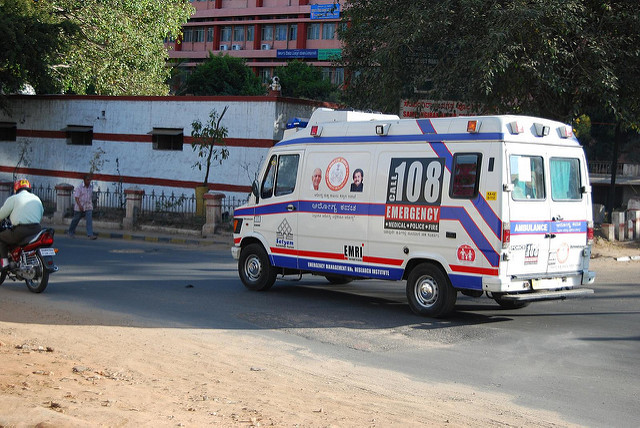Health care in India is still not a privilege to everyone. There are several communities in the country for which basic healthcare needs are rarely accessible.
Salt pan farmers working in the Little Rann of Kutch are facing a similar situation. This farmer community, known as the Agariyas lives about 250 km away from Ahmedabad, a major city of Gujarat. They live in the salt dessert for 8 months every year to produce 70% of the total salt production of the country. However, they make only 60 rupees per ton for the salt they work so hard for, whereas, the market price is somewhere around 5500 rupees.
These people suffer from various skin diseases that they are not even aware of, and hence have a very low life expectancy. Their legs are so thin and stiff because of continuous exposure to salt that they do not even burn in their pyres after they die.
The healthcare accessibility in the area is almost non-existent apart from some efforts made by NGOs. The medical attention required for something as natural as childbirth is so difficult that the villagers have to carry the pregnant women for 10-15 km before they can get an access to ambulance.
In a similar situation, Dadra and Nagar Haveli’s tribal population were unable to access quality healthcare due to absence of medical facilities in this region. On top of that, the unhygienic living conditions of the tribal people had caused an alarming increase in leprosy cases in the union territory. According to the government data, there was a rise of 138 per cent in the leprosy cases between 2006 and 2014.
In order to aid in the improvement of health of the tribal population in the region, Sterlite Tech Foundation has launched its newly modernized Mobile Medical Unit, in collaboration with the Red Cross Society, at Silvassa. Under the program, the company provides free health check-ups to tribal villages, site visits by qualified doctors and a mobile dispensary with free prescribed medicine distribution through a Mobile Medical Unit.
With an aim to serve over 16,000 patients every year, the Mobile Medical Unit will be visiting 24 villages in tribal regions to provide quality healthcare access every week. Kuldeep Singh – Secretary, Indian Red Cross Society, Silvassa, has said, “Covering four villages each day, the new Mobile Medical Unit has been equipped with state-of-the-art medical equipment, free medicines, a qualified doctor and nurse to address tribal health issues.”
Healthcare is a basic need for every individual. It is necessary to look at it as a right instead of a privilege. Only when more corporates and individuals start taking personal interest in it, and figure out ways to replicate the move made by the Sterlite Tech foundation, will we be able to make basic healthcare available to every citizen of India.
Thank you for reading the story until the very end. We appreciate the time you have given us. In addition, your thoughts and inputs will genuinely make a difference to us. Please do drop in a line and help us do better.
Regards,
The CSR Journal Team


